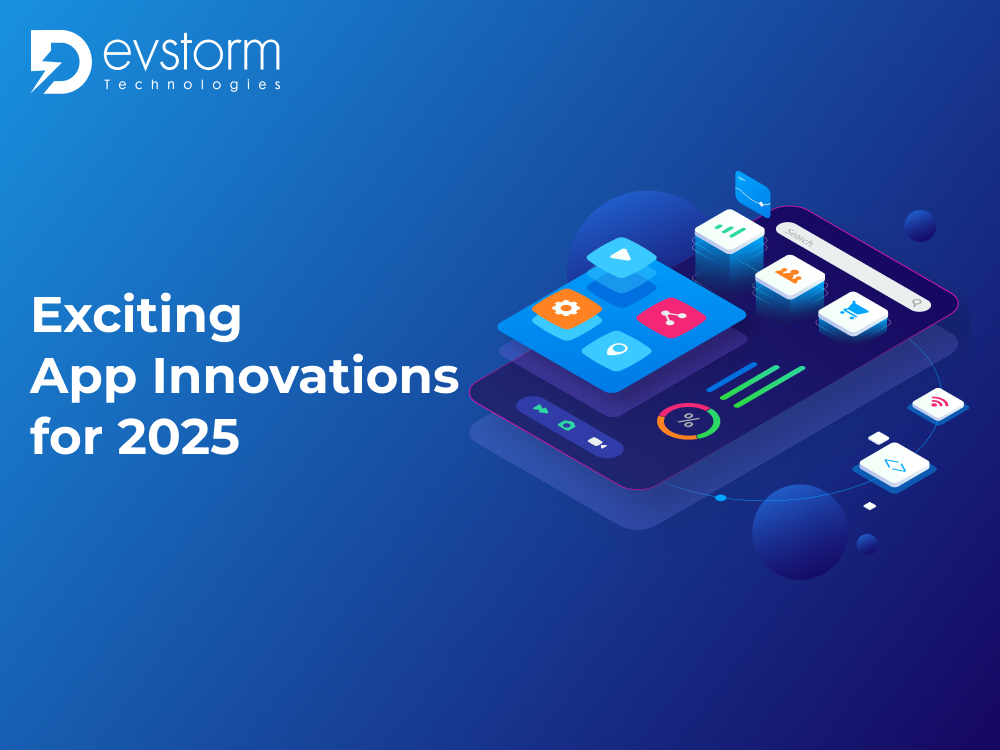Introduction
The world of app development is advancing at a rapid pace, fueled by innovations in artificial intelligence (AI), augmented reality (AR), blockchain, and user-driven design. As we move into 2025, technology is reshaping digital experiences, making apps more intelligent, interactive, and efficient than ever before. From AI-powered personalization to super apps and eco-friendly solutions, this year promises groundbreaking developments that will redefine how we use mobile and web applications.
Whether you're a business owner, developer, or tech enthusiast, staying ahead of these trends is essential. Let’s dive into the top app innovations shaping 2025 and how they are transforming industries.
1. AI-Powered Personalization
Artificial Intelligence is revolutionizing apps by providing hyper-personalized experiences. AI-driven recommendations, predictive analytics, and real-time behavior analysis are making apps smarter and more responsive.
- E-commerce platforms suggest products based on browsing habits.
- Fitness apps adjust workout plans based on progress.
- Streaming services curate content uniquely tailored to each user.
With advancements in machine learning and natural language processing (NLP), AI-driven personalization is enhancing engagement and retention, making apps indispensable in everyday life.
2. Voice and Gesture-Controlled Apps
Voice-activated technology has grown significantly with Alexa, Siri, and Google Assistant, and now, gesture-based controls are emerging as the next big innovation.
- Smart home apps allow users to control appliances using voice or hand movements.
- Healthcare apps assist people with disabilities by enabling touch-free navigation.
- Gaming and entertainment apps are incorporating gesture-based interfaces for more immersive experiences.
These features are making apps more accessible and convenient, reducing reliance on traditional input methods.
3. Augmented Reality (AR) and Virtual Reality (VR) Integration
AR and VR are no longer just for gaming—they are redefining industries such as retail, education, and real estate by creating immersive experiences.
- E-commerce apps let customers try on clothing or preview furniture in their homes.
- Education apps provide VR-based simulations for more interactive learning.
- Healthcare apps use AR for real-time medical training and remote consultations.
As AR/VR hardware becomes more affordable, their integration in mobile apps will continue to grow, making digital interactions more immersive than ever before.
4. No-Code and Low-Code App Development
Gone are the days when app development required extensive coding knowledge. No-code and low-code platforms are making it easier than ever for businesses and individuals to create apps.
- Entrepreneurs and small businesses can launch apps without hiring developers.
- Corporations use low-code tools for faster prototyping and automation.
- Non-technical users can build customized apps without writing complex code.
This democratization of app development is accelerating innovation and reducing costs, allowing more people to bring their ideas to life.
5. Blockchain-Powered Apps for Security and Transparency
With concerns over data security and privacy, blockchain technology is becoming a core component of modern apps.
- Decentralized apps (DApps) ensure secure transactions without middlemen.
- Smart contracts automate agreements, reducing fraud risks.
- Fintech and healthcare apps use blockchain for safe data storage and transparency.
As cyber threats increase, blockchain-powered apps offer a more secure, transparent, and efficient way to handle transactions and sensitive information.
6. The Rise of Super Apps
Super apps—platforms that offer multiple services within a single ecosystem—are transforming user experiences. Inspired by WeChat, Paytm, and Gojek, these apps integrate messaging, payments, shopping, and more in one seamless platform.
- Users get convenience by accessing various services in one place.
- Businesses boost engagement through all-in-one functionality.
- Developers enhance monetization by integrating multiple revenue streams.
As companies focus on multi-functionality, super apps will continue to dominate the market, offering a one-stop solution for digital needs.
7. Eco-Friendly and Energy-Efficient Apps
Sustainability is a growing concern, and app developers are prioritizing eco-friendly solutions that minimize battery usage and optimize performance.
- Green apps track carbon footprints and encourage sustainable practices.
- Energy-efficient coding reduces resource consumption on mobile devices.
- Businesses integrate sustainability into digital platforms to appeal to conscious consumers.
With users demanding greener alternatives, developers are ensuring that apps contribute to a more sustainable digital future.
Conclusion
2025 is set to be a transformative year for app development, with innovations in AI, AR/VR, blockchain, and sustainability driving the industry forward. These advancements are making apps smarter, more interactive, and more secure, providing enhanced user experiences across multiple sectors.
For businesses and developers, embracing these trends will be key to staying ahead in a competitive market. Whether through AI-powered personalization, no-code development, or blockchain security, the future of apps is more connected, intelligent, and user-focused than ever.

